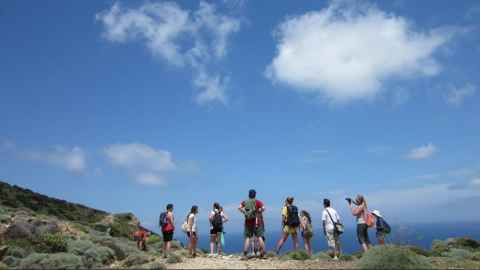Graeme Dingle Foundation
The University has a longstanding research and evaluation partnership with Graeme Dingle Foundation.

The University of Auckland has enjoyed a longstanding research partnership with Graeme Dingle Foundation. This partnership ensures that the foundation’s governance, training and evaluation of their five youth development programmes (Project K, Stars, Kiwi Can, MYND and Career Navigator) is informed by the best knowledge and research on how to promote the health and well-being of young New Zealanders.
Dr Kelsey Deane joined her supervisor Associate Professor Niki Harré (School of Psychology) in partnering with Graeme Dingle Foundation when she began her PhD study in 2007. Dr Deane’s PhD research focused on a mixed-method evaluation of Project K, a multi-component programme for Year 10 students with low self-efficacy. Kelsey integrated findings from various programme sources to produce a stakeholder-driven theory of change for the programme. This process was useful in evaluating how Project K’s theory stands up against best practice recommendations for youth development programming. It also helped to identify the programme’s unique strengths and areas for further programme development. In addition, Dr Deane analysed data collected as part of a large-scale randomised controlled trial evaluation of Project K. The findings from this study illustrated that Project K offers a promising means of positively impacting young people’s self-efficacy beliefs. Findings also suggested that the programme may help to reduce disparities typically found between these groups in self-efficacy and academic achievement outcomes.
Kelsey has continued her partnership with Graeme Dingle Foundation post-PhD as an ongoing evaluation consultant and, in 2012, she led a project with the foundation’s Research and Evaluation Unit to investigate how senior student experiences as mentors in the STARS cross-age peer mentoring programme influence the development of life skills and pro-social values. The project was entirely collaborative as a key aim was to build the evaluation capacity of the foundation’s junior Research Unit members. Decisions with regards to evaluation design and measures were determined together; both parties were involved in the data collection process; analyses of the quantitative data were jointly reviewed; and qualitative data were collectively analysed. The mentors who participated in the project were also involved in the interpretation of the results as part of the research dissemination workshops that were offered.
Following in the footsteps of her mentor, Associate Professor Harré, Dr Deane also supervises postgraduate student research projects with Graeme Dingle Foundation. Current PhD projects include direct observation research on the factors that influence youth engagement in the outdoor adventure and community contribution components of Project K and an in-depth qualitative exploration of the reintegration experiences of youth participants into family life following participation in the residential outdoor adventure component. Both projects extend Dr Deane’s own PhD research in ways that will not only inform Project K programme development but also the broader knowledge base on youth development programming.
Community-University partnerships are generally recognised as mutually beneficial endeavours and this has certainly been the case for the University of Auckland and Graeme Dingle Foundation. Graeme Dingle Foundation offers University of Auckland researchers opportunities to conduct meaningful projects which have a direct impact on the learning and development of community-based organisations in Aotearoa New Zealand and the broader field of youth development research and practice. In turn, the University of Auckland offers Graeme Dingle Foundation scientifically credible information which can be used to affirm or improve current programme practices.